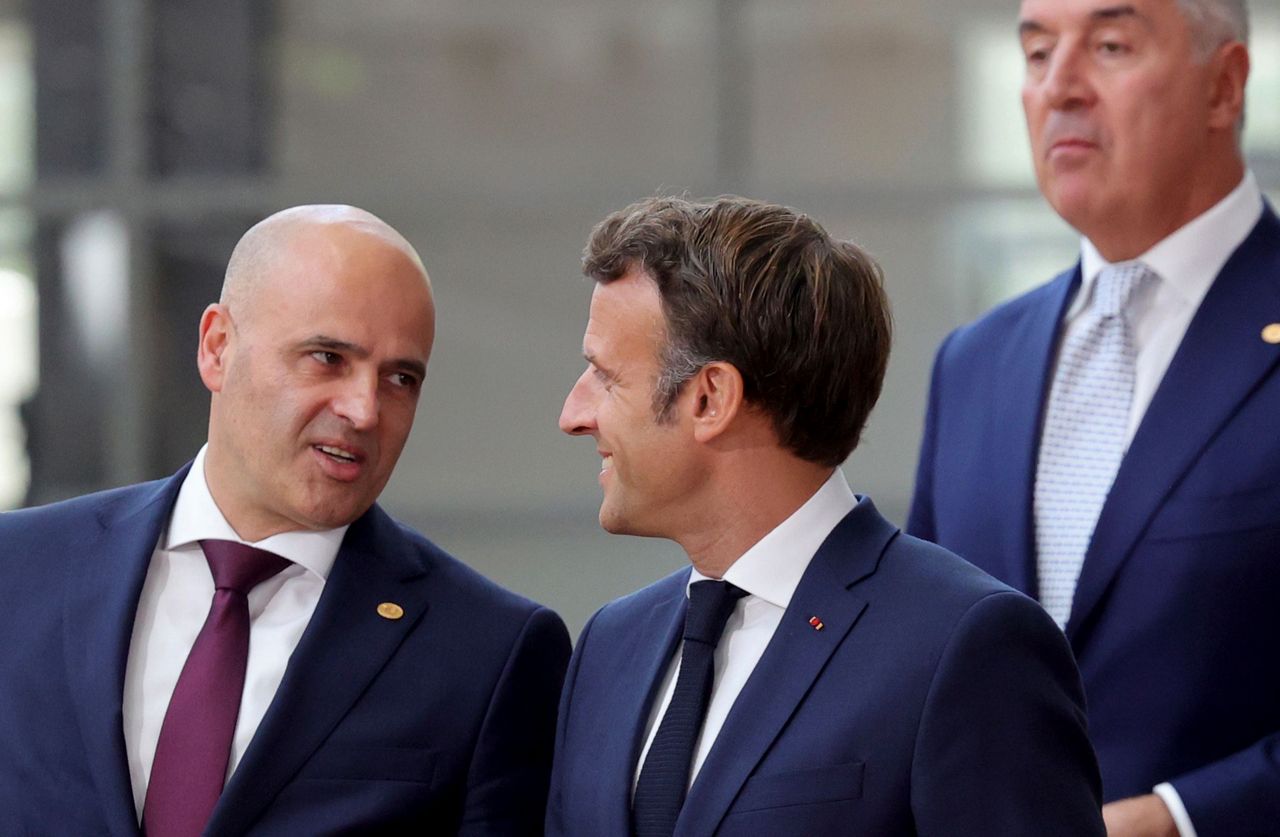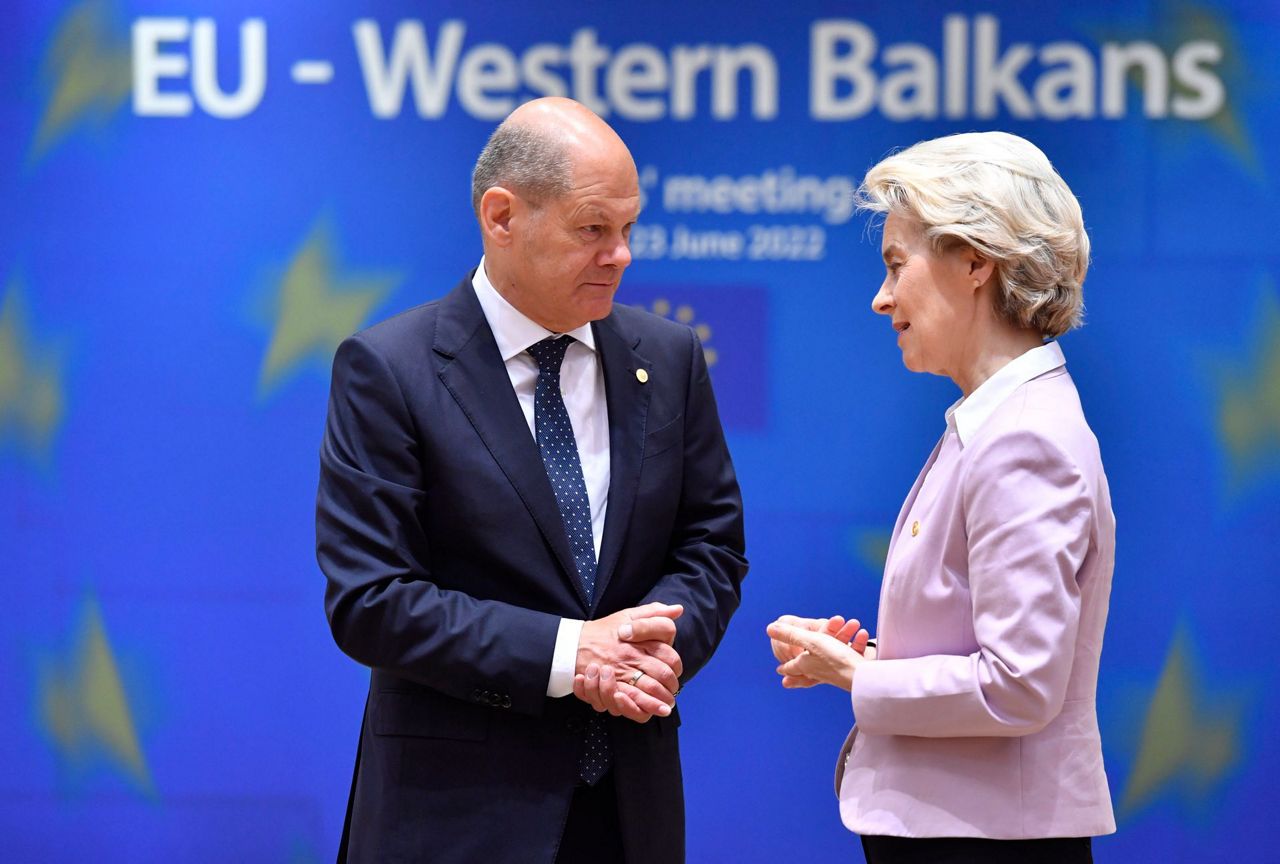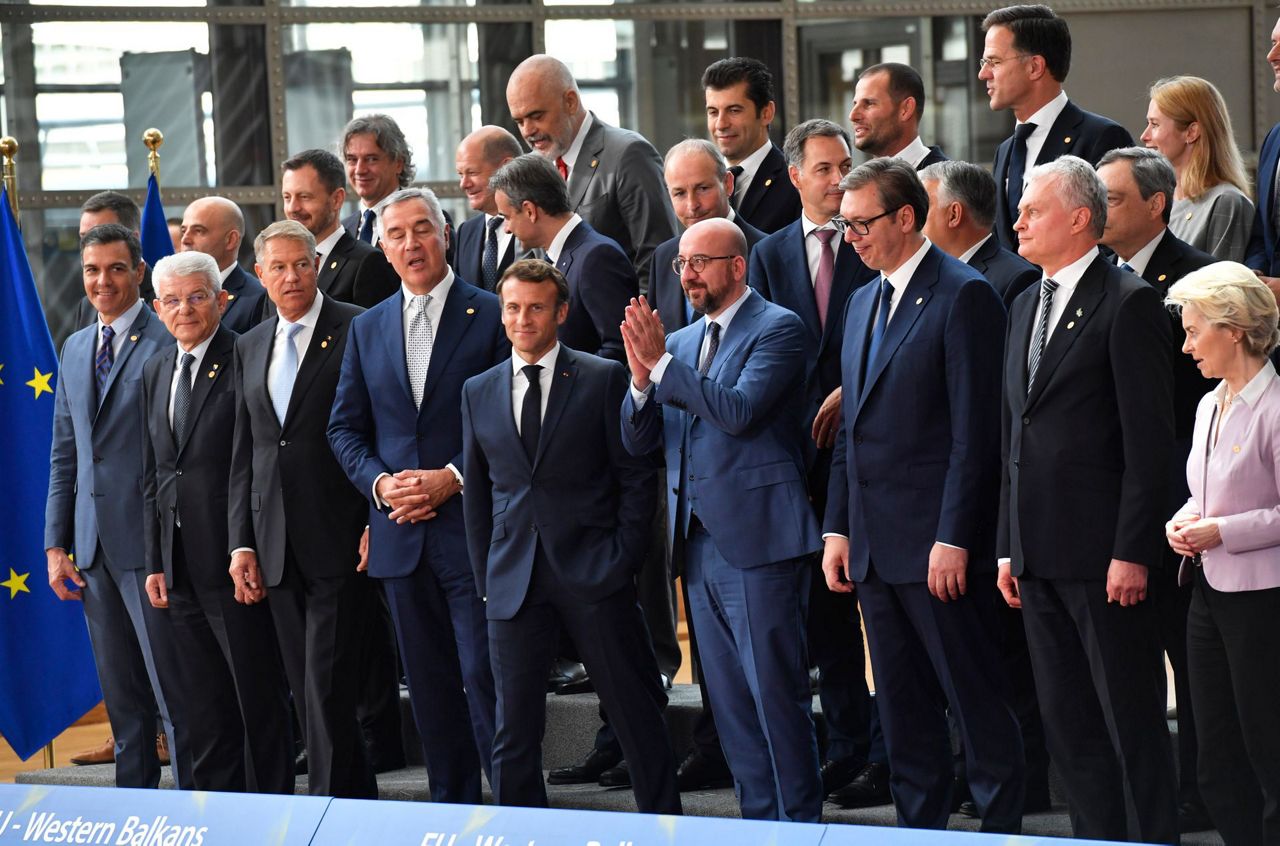SOFIA, Bulgaria (AP) — Bulgaria’s parliament voted Friday to lift a veto that has long blocked European Union membership negotiations with North Macedonia and Albania, raising fresh hopes that the bloc can now press on with its expansion plans in the Western Balkans amid Russia’s war in Ukraine.
France, which currently holds the EU’s rotating presidency, made a proposal this week to resolve an ethnic and cultural dispute between Bulgaria and North Macedonia that was the source of the veto.
Under the French proposal, North Macedonia would have to recognize in the preamble of its constitution that Bulgarians are one of the country’s constitutive ethnicities. North Macedonia said Friday that three main topics needed clarification before it would agree to the deal.
While North Macedonia’s prime minister opposed the French proposal Thursday and a no-confidence vote toppled Bulgarian Prime Minister Kiril Petkov a day earlier, the French plan ultimately altered the dynamics among enough Bulgarian lawmakers. The vote to lift the veto passed 170-37, with 21 abstentions.
“Parliament took a historic decision today, giving a green light to the proposal for the EU accession of North Macedonia,” said Petkov, who had been working to settle the dispute before the no-confidence motion brought down his government.
North Macedonia has been a candidate for EU membership for 17 years. The country received a green light in 2020 to begin eligibility talks, but no date was set for the start of the negotiations.
Some have feared that keeping Western Balkans nations out of the EU would allow Russia to strengthen its influence in the region, which experienced wars in the 1990s during the breakup of Yugoslavia. North Macedonia away from the 27-nation bloc, Russia’s grip on the Balkans will be strengthened.
Bulgaria has used its power as an EU member to block North Macedonia's accession, since all enlargement decisions require unanimous approval from the 27-nation bloc. The Bulgarian government insisted that North Macedonia formally recognize that its language has Bulgarian roots, acknowledge in its constitution a Bulgarian minority and quash “hate speech” against Bulgaria.
Its stance inadvertently also stalled Albania’s progress toward EU membership because the bloc is treating the pair as a political package. All three countries are NATO members.
The European Commission has made repeated promises to six Western Balkan nations saying that their futures lie within the EU. As well as North Macedonia and Albania, Bosnia, Kosovo, Montenegro, and Serbia have also been afflicted by delays amid divisions among member states and some bilateral issues.
Clement Beaune, the French minister for European affairs, said this week that the proximity of Russia’s war in Ukraine has put the onus on the bloc to “reinvigorate” its expansion in the Balkans.
French President Emmanuel Macron said the vote in Bulgaria's parliament was a “very good signal,” adding that technical work required to pave the way for a final deal in the coming days would.
“There is still work to be done, I don’t want to claim victory too early, but it’s an important step forward,” he said.
On Thursday, North Macedonian Prime Minister Dimitar Kovachevski told reporters in Brussels that the French proposal "in its current form is unacceptable to me, for the president, the government, the coalition partners and people of the Republic of North Macedonia.”
Kovachevski added that Skopje needed “strong guarantees” that Bulgaria would not add new requirements to the EU's negotiating framework.
North Macedonia's foreign minister, Bujar Osmani, said Friday that the country's language and history must not be part of the framework and that the EU membership talks needed to start before the country’s constitution is amended to reference a Bulgarian minority.
“If we receive a proposal that takes into account our positions, an agreement can be reached in the coming days,” Osmani said, adding that his government did not yet know the contents of the version adopted by Bulgarian lawmakers.
“We will be in communication with France in the coming days and we will see how things will go,” he added.
Ruslan Stefanov, program director at the Center for the Study of Democracy, a Sofia-based think tank, said Friday’s vote “externally and politically removes the pressure on Bulgaria.”
“Things don’t look the same in North Macedonia, though,” he told The Associated Press. “It seems there has been quite sizeable public outcry as to not liking the proposal of the French presidency, so it might be a little bit more difficult for the government there.”
___
McGrath reported from Sighisoara, Romania and Petrequin from Brussels. Konstantin Testorides in Skopje, North Macedonia, contributed to this report.
___
Follow AP's coverage of the Russia-Ukraine war at https://apnews.com/hub/russia-ukraine
Copyright 2022 The Associated Press. All rights reserved. This material may not be published, broadcast, rewritten or redistributed without permission.





